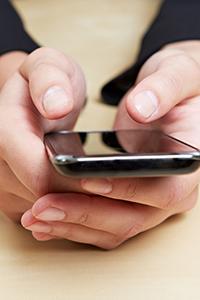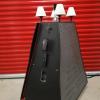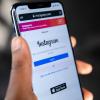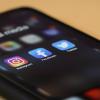Dear Mobile Health App Developers,
We—patients and caregivers—need your help to reduce the demands of self care. Mobile health (mHealth) apps have enormous potential to lessen our burdens. But our needs are often only loosely related to what clinicians and/or the evidence expect us to do. Most mobile app developers have ignored this fact by designing tools that primarily reflect the imperatives of clinicians and evidence with little or no consultation with us patients about our experiences, our wishes or our requirements.
While I can't promise you that consultation with us is the magic key to successful, well-used apps, I can tell you that without it, your app doesn't stand a chance.
Two recent experiences prompted me to write you. Each illustrates the gap between the promise of mobile health apps to help us care for ourselves and our spotty uptake and use of them.
First, I recently got a new phone and found myself unwilling to load even a single one of the 23 health-related apps that I had carefully chosen and used from the old phone to the new.
Second, I have recently been approached by a number of mobile app developers looking to speak with a real patient about their projects. While talking to potential users is generally a good idea, these developers weren't interested in my needs but rather were seeking endorsement of the beta version of their new apps.
These experiences left me ornery and impatient about the current state of mHealth apps. Why haven’t they just taken off?
Now, I am a member of your target audience. I have a number of chronic conditions that require me to do many tedious tasks every day to take care of myself. I am fairly tech-savvy and would really like to make use of new mobile technologies to reduce the time and effort I expend. In addition to living with the effects of four cancer diagnoses and their treatments, I spend a lot of time listening to people describe their experiences with illness and health care.
Here are three observations that might help you:
1) We will not use mobile apps that add to the time we spend caring for ourselves.
Being sick is a tremendous time-drain for us and our caregivers. It requires us to do many repetitive tasks: take medications, eat special diets, do various exercises and so on. These consume far too much of our days, even if we cut corners. Many mobile apps, however, require that we spend a long time figuring out how they work and take additional time to use properly.
Here's an example: My endocrinologist asked me to keep a food diary for a week, so I downloaded a popular diet/exercise app. I am recovering from stomach cancer and I have to eat every hour, so I have to plan what to eat for the day and pack it up, decide what I'm willing to eat each hour, and then eat it s-l-o-w-l-y. Doing this interrupts my work. It is inconvenient. It is often impolite.
To keep track of this already disruptive task, every hour I had to find my phone, open the app, locate each of the food items, estimate the amounts and accurately record them. 60 minutes later...wash, rinse, repeat. It took more time to enter what I ate than it did to eat it.
I used the app for three days before I resorted to pen and paper. I deleted the app.
2) We do not respond well to nagging.
Sick or well, we have come to love our mobile devices. They are a source of immediate gratification: a powerful link to those we love, access to pictures, sports scores, movies and gossip about friends. That little device is so positive, so beloved. It connects us to the world.
But the moment an app on that device in any way resembles the voice of our mom reminding us for the fourth time to make our bed, that's the end of the app.
Here's an example: An interviewee told me about an older friend who was having trouble remembering to put in her eye drops every day at 3:00. My contact offered to program her friend's cell phone to chime at 3:00 every day as a reminder to use the drops. "Great idea!"
When my contact called her friend the following week, the phone wasn't taking messages. Same thing a week later. The following week they saw each other at an event.
"I've been trying to get in touch with you! Are you OK? Is there something wrong with your phone?"
Well, that chime drove her nuts. It went off at the library, during her nap, at Tai Chi. It didn't help her; it bothered her. But she didn't know how to turn it off, so she drained the phone battery and put it in a drawer.
It's a fine line between welcome reminding and intrusive nagging. Many of us are already nagged by our caregivers, family members, co-workers and clinicians to do what we are supposed to, and we are particularly sensitive to that form of communication. We don't like it.
My contact's friend deleted the app.
3) We favor apps that are linked to (or associated with) our clinicians.
For many of us, our clinicians are the gatekeepers to the technologies and drugs that reduce our symptoms and contain our disease. They are our valued partners in our effort to feel well enough to live as fully as we can. To the extent that any mobile health app supports, facilitates and extends that relationship, we will be more likely to use it.
I interviewed someone who carefully tracked her blood pressure three times a day over a six week period on a mobile app at her physician's request. She brought a beautifully detailed chart to her physician who glanced at it, said, "Looks better," and tossed the chart in the wastebasket.
"Don't you want to put this in my record?" she asked.
"There's no way for me to do that. Keep up the good work," he replied.
She deleted the app.
Friends, I understand your desire to develop an app that is wildly popular and that changes the landscape of patient engagement nationwide. But the things that apps do – remind us, nudge us, identify patterns for us, help us monitor symptoms, send data to our doctor for us – constitute tiny fragments of days that we spend gasping for breath in our chairs, lying on our couches in pain or forcing ourselves to slog through endless uncomfortable chores. To be unwell is to be uncomfortable. It is sometimes frightening and always a drag.
Amy Tenderich, founder of Diabetes Mine, once told me, "We will use tools that answer our questions and solve our problems. We will avoid tools that help us do what you think we should do and we won't use tools that add to the work of caring for ourselves."
Even the most successful mobile app can, at best, hope to tweak that experience and make it easier for us to solve the problems we identify that will help control the disease or the symptoms and thus allow us to better enjoy our days.
Many of us anxiously await the fruits of your work.
Sincerely,
Jessie Gruman
















